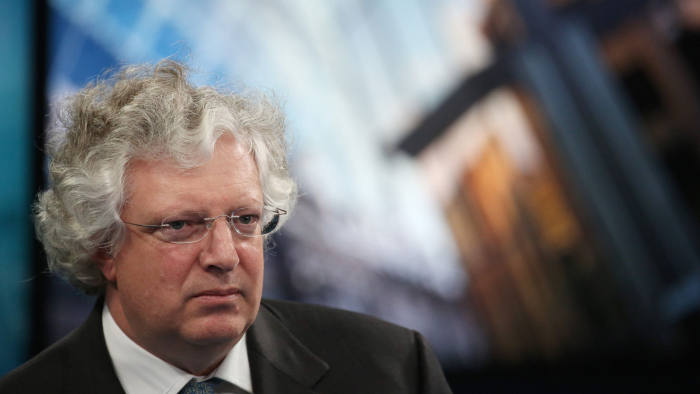Buyout pioneer warns industry’s culture is ‘not fit for purpose’
Private equity has a surprising new critic: Guy Hands, a pioneer of the buyout industry in the UK.
The 60-year-old has hit out at fellow dealmakers for becoming too focused on how much money they make and inhabiting a culture that is “not fit for purpose for the world we now live in”.
Mr Hands launched his critique in a speech to students at a conference on alternative investments in London this week.
He said the industry in which he made his fortune had “got too insular”.
“We tended to only talk about ourselves — the funds we raised and the pay cheques received,” he said, rather than about improving companies and creating jobs.
His speech comes at a time when the private equity industry is increasingly under fire, particularly in the US where it has drawn criticism from unions and Democratic presidential contender Elizabeth Warren, who has accused them of “looting” companies. Singer Taylor Swift has also lambasted what she described as “the unregulated world of private equity”.
Mr Hands was one of the UK’s most prominent private equity executives before the 2008 financial crisis.
The former Goldman Sachs banker pioneered “whole business securitisation” — a way of funding buyouts using complicated slices of debt secured on company assets — when he worked at Nomura in the 1990s. Mr Hands spun the unit specialising in it out of the Japanese bank in 2002, renaming it Terra Firma.
However, his disastrous acquisition of record label EMI just before the onset of the financial crisis led to nearly a decade of litigation. Terra Firma has in recent years proved unsuccessful in its attempts to raise a multibillion-euro fund to cash in on the latest buyout boom.
Mr Hands said this week that back in the 1990s private equity “was very small and didn’t pay lots and lots of money” and executives “believed we were benefiting society”. He said that he realised in 2017 that Terra Firma had become a place where “people fought against each other to take as much of the pie for themselves as they could”.
“Most of the people working in Terra Firma were only there for the money,” he said, adding that he cut pay as a result and half of his staff left.
Mr Hands said there were now signs of “something positive happening” as the industry started talking about its social and environmental impact.
“Investors are becoming willing to accept slightly lower returns [in exchange for deals that create jobs and have a positive impact]”, he said, while becoming increasingly unwilling to buy into profitable deals that carry a high “social cost”.
Terra Firma has been involved in controversial buyouts. It bought Britain’s second-biggest care home operator Four Seasons in 2012, injecting £300m of equity, but leaving the business with more than £500m of debt. Mr Hands lost control of Four Seasons’ core business, which filed for administration last year. He had earlier won a court battle, in 2018, to retain control of 24 separate care homes.
Source: Financial Times
Can’t stop reading? Read more
Fund Friday: Top fundraising news in private equity
Fund Friday: Top fundraising news in private equity Aquilius Investment Partners, a...
KKR powers past $723bn AUM on record fundraising and historic investment pace
KKR powers past $723bn AUM on record fundraising and historic investment pace KKR & Co. posted...
Ardian to acquire 90% stake in Centrotherm, boosting European semiconductor portfolio
Ardian to acquire 90% stake in Centrotherm, boosting European semiconductor portfolio Ardian has...




